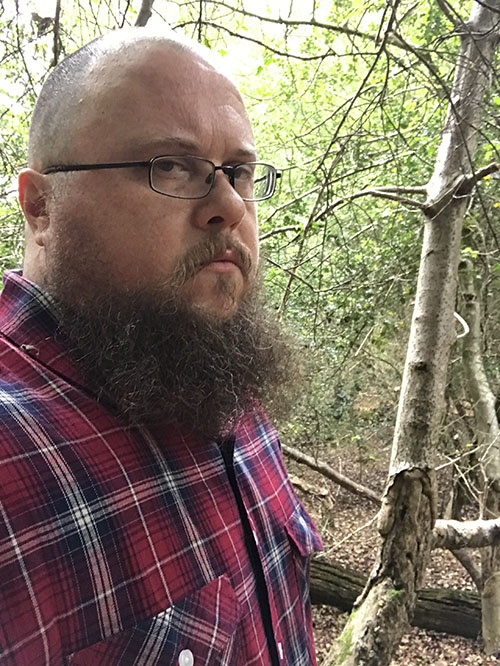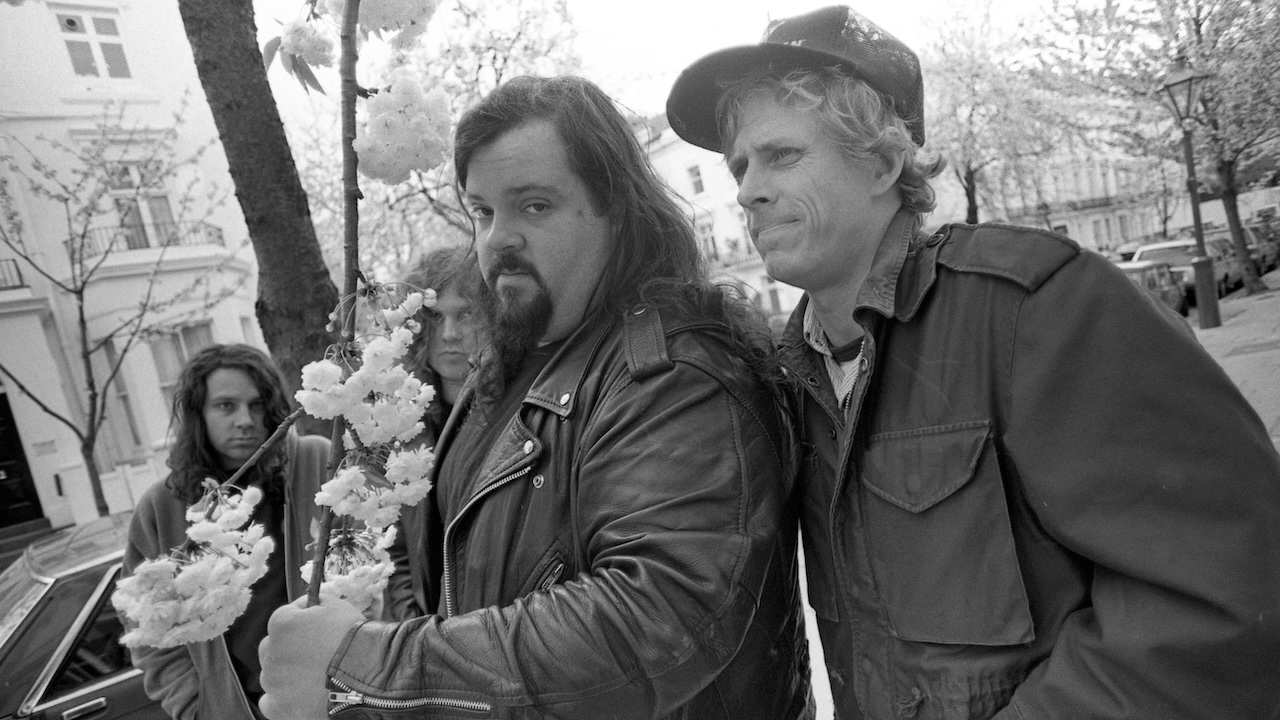"We went to abandoned cemeteries at night, stole everything we could find." Black magic, human skulls and Aleister Crowley – the twisted story of Tobias Forge’s favourite cult horror-metal band, Death SS
They were as infamous as they were influential, inspiring everyone from Venom to Ghost. This is how Death SS became a cult metal legend
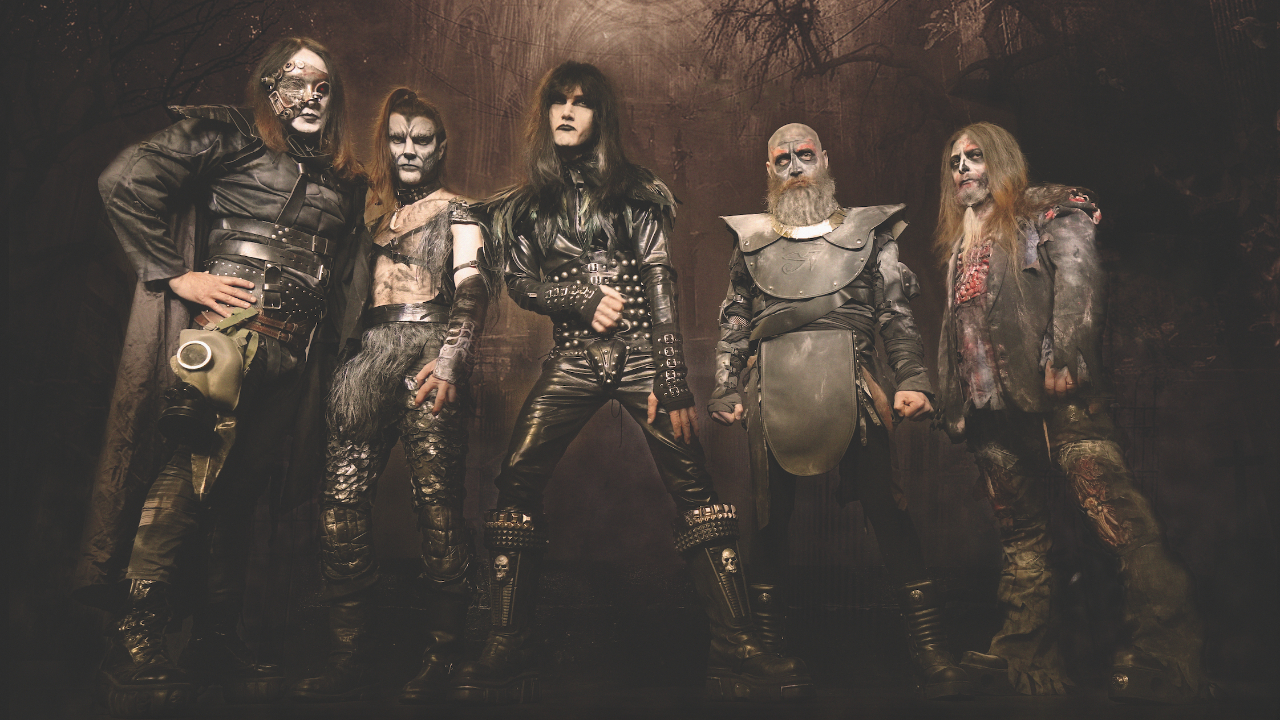
Steve Sylvester is a reluctant trailblazer. As frontman with cult Italian horror-metal band Death SS, he was plundering graveyards for stage props and embracing the occult well before the likes of Venom, Mercyful Fate and Bathory. But he insists never deliberately set out to drag metal to the dark side.
“Many people said that Death SS was the precursor of black metal, because we started in 1977, doing Satanic things in music before all those other bands," he says. "But it was completely unconscious. We simply were very young guys all dressed in black, with a street attitude, really obsessed with dark things, who came into the cemetery at night and wanted to do what we liked.”
Nearly 50 years after they formed, a huge gulf exists between Death SS’s influence and the recognition they receive outside of their homeland. In overwhelmingly Catholic Italy in the late 1970s, these brave souls were stress-testing the most obsessively morbid, avowedly occult aesthetic that metal had ever seen. They became a household name in their homeland, and they’re worshipped by clued-up fans of occult metal from further afield – not least Ghost’s Tobias Forge, who has acknowledged them as a big influence on his own band’s image, music and message.
Yet this enigmatic five-piece have maintained a shadowy mystique and cultish detachment from any scene, despite boasting a ton of killer tunes, a luridly colourful story and one of heavy metal’s greatest theatrical gimmicks, with each bandmate identifying as a classic monster - Vampire, Death, Zombie, Mummy, Werewolf and so on.
The Steve Sylvester speaking to Hammer via Zoom doesn’t look especially monstrous, though witchcraft seems to have been involved at some point. The disarmingly affable singer, born Stefano Silvestri, is now 64 but looks at least 20 years younger, a jet black mop of curls tumbling down onto the shoulders of his black leather jacket.
He was a teenager when he formed Death SS in 1977, obsessed by comics and the movies of Italian horror maestros Mario Bava, Lucio Fulci and Amando de Ossorio.
“All these were forbidden for minors, so I tried always to enter cinemas illegally,” he says. “At the same time, my favourite band as a child was the English glam band The Sweet. As I loved horror, I thought, 'What if Brian Connolly, the singer from The Sweet, was a vampire?' So I transformed myself into a dark demoniac version of Brian Connolly, and I wanted to play 'death music'. This was an original thought for a child in Italy in 1977!"
Sign up below to get the latest from Metal Hammer, plus exclusive special offers, direct to your inbox!
Those adolescent passions remain the foaming lifeblood of Death SS’s death-glam horror metal. The band’s new album, The Entity, is a luxuriant love letter to Steve's youthful obsessions. It's their first full-scale narrative concept record, centred around the idea of notorious occultist Aleister Crowley summoning the destructive entity that possessed the minds of such Victorian villains as Dr Jekyll and Jack the Ripper, with the singer archly weaving the band's own existence into this lineage of historic evil. Crowley's name crops up frequently in heavy music, but his occult writing came as a revelation to the teenage Steve.
"Crowley was always a source of inspiration for the philosophy of Death SS,” he says. ‘I wanted to discover occultism, not only the theatrical part but the older histories, something deeper, for my knowledge. So I soon discovered Crowley and his philosophy of Do What Thou Wilt, which is very simple but very strong. I got in contact with the people who led the lodge in Italy that follows the teachings of Crowley, the Ordo Templi Orientis. I became part of the OTO for my personal studies, but I'm not a fanatic.”
Today, he says, he has a balanced spiritual outlook. “My personal current of philosophy is chaos magic, but I try to live by Crowley's motto ‘Love is the law, love under will’. Everything must be done with passion, with love, and with respect for others."
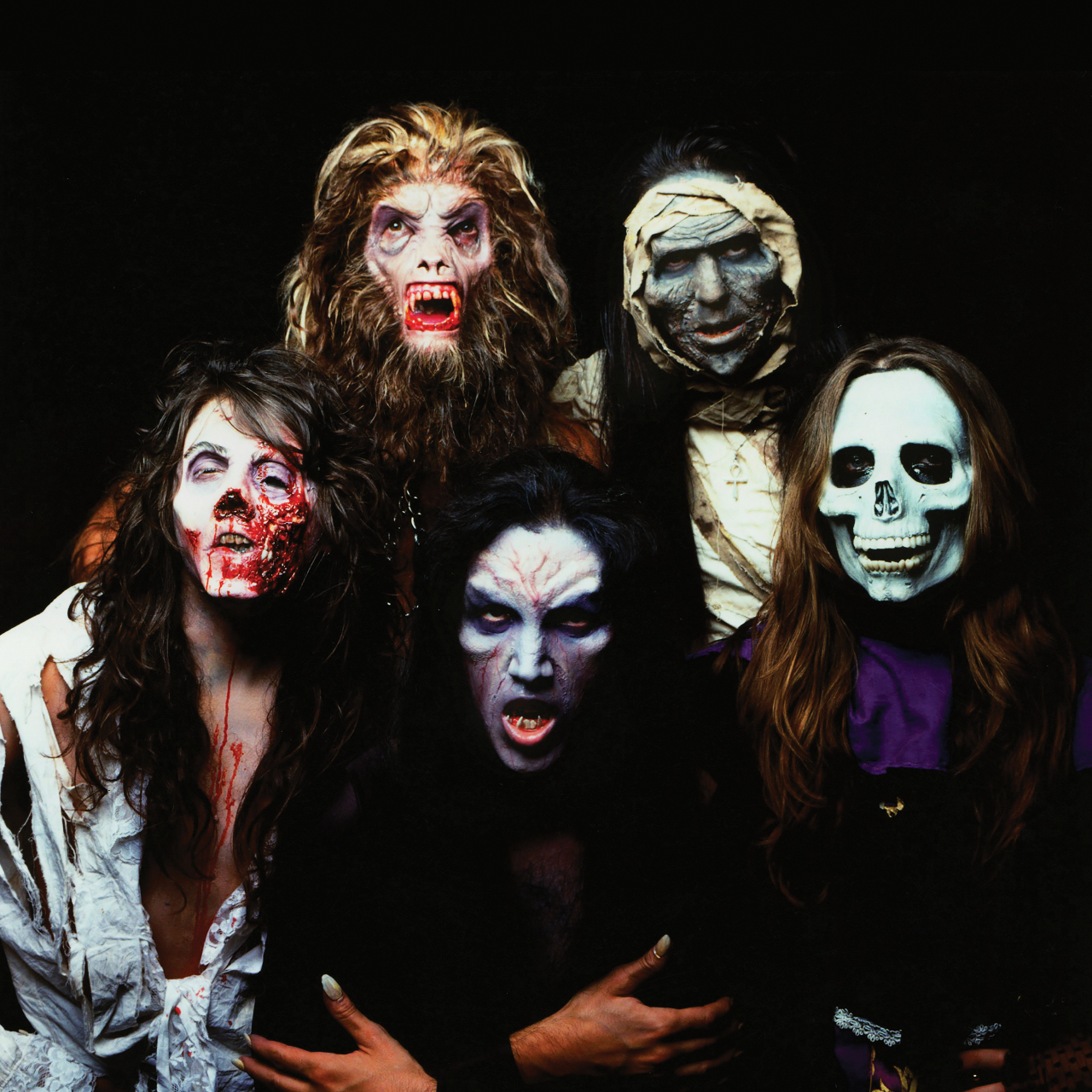
Death SS’s early years are shrouded in mystery. Formed in the city of Pesaro by Steve and guitarist Paul Chain, they released a demo EP, The Horned God Of The Witches, in 1981, but little other music made it out of the crypt during that formative period. Instead, their early notoriety was founded on their live show, where rumours of Satanic excess and orgiastic carnage compounded the band's mystique.
“The first shows were very simple,” says Steve. “We went to abandoned cemeteries at night, stole everything we could find that looked cool, then carried them onstage before we played. It was all real, authentic stuff, like crosses, old broken coffins, real human skulls. I remember one guy at the front of the stage recognised the headstone of his grandfather! Also we threw worms into the audience. Now I laugh at this, but you have to consider when we were doing these things we were 16, 17, it was the punk attitude.”
They began to build a growing fanbase who would turn up to every gig they played. But they also attracted the ire of those who had no time for such devilish antics. People would wait outside their gigs to beat up the band members, and the police would often turn up to shows to “take control”, as Steve puts it. Even now, Death SS occasionally get similar attention from the authorities. Following a show four years ago, they ended up in a police station after being accused of performing “obscene acts in public”, thanks to the flaming crucifixes and naked woman that are part of their live show.
“All I do onstage is just a theatrical act, stolen from horror movies and comics,” insists Steve. “Naked women, skulls, blood - everything is with much irony and fun. But there is something of real meaning inside. There are two sides: the visual, because music must be entertainment, and something deeper for people to find if they seek it."
Run-ins with people who didn’t like what they were doing were one thing, but other, more sinister forces have seemingly conspired against Death SS at times. Back in their early days, these inexperienced occultists’ dabblings with dark forces didn’t always garner positive results.
“From the beginning we were very serious about our black magic practices,” says Steve. “But we were very young, and sometimes something went wrong. A lot of very bad things happened to us.”
He won’t be drawn on the specifics of this bad juju, but in 1982 Steve had to step away from Death SS, in calamitous mental and physical shape. Guitarist Paul Chain was left to rebuild the band and take them forward with a debut EP, 1983's Evil Metal, featuring replacement vocalist Sanctis Ghoram. Stymied by a pressing error, few copies even made it to market – another sign, it seemed, that the band was cursed. Paul Chain apparently thought so, laying Death SS to rest in 1984, forming Paul Chain Violet Theatre and releasing an EP pointedly entitled Detaching From Satan.
"I haven't seen Paul for many years," says Steve. "I know he became a Jehovah's Witness, which completely changed his life. He's always been a very strange guy."
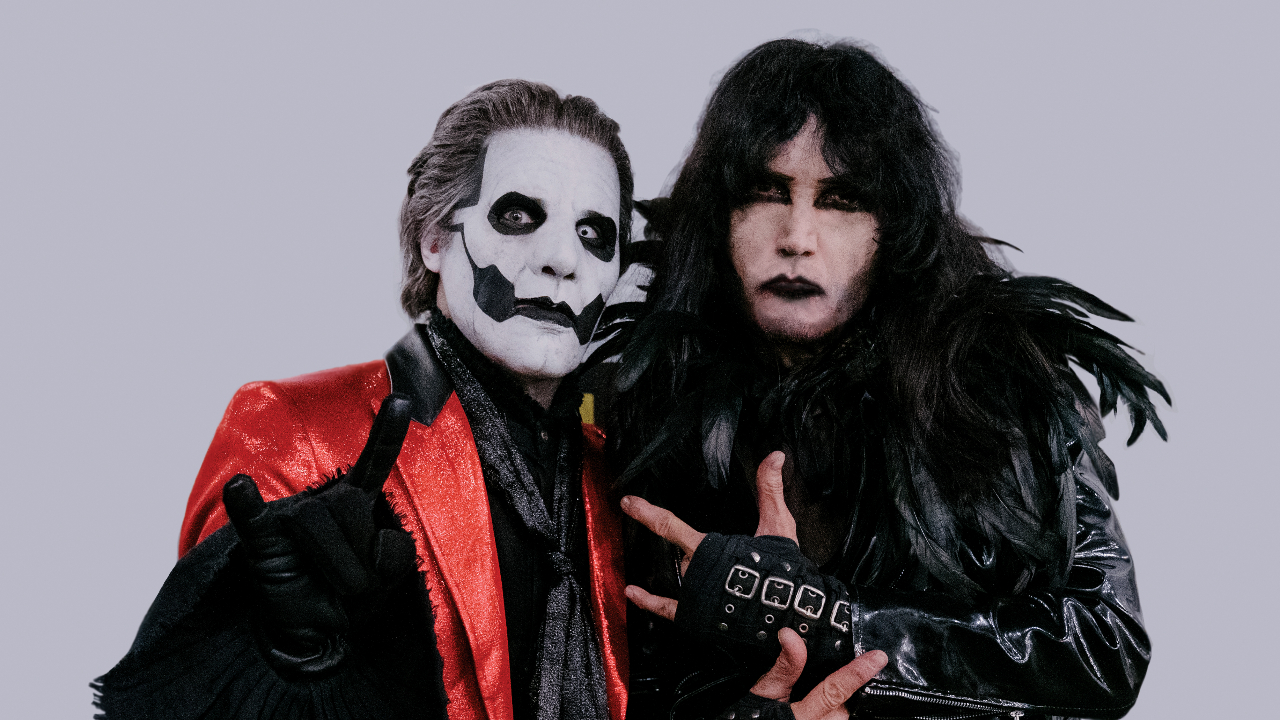
Other bands rose to prominence in Death SS’s absence, chief among them Mercyful Fate, who ploughed the same theatrical occult-metal furrow. But the devil looks after his own, and the Death SS flame began to flicker once more with the 1987 compilation, The Story Of Death SS 1977-83. By that point, Steve had slain some of his demons and relaunched the band with renewed enthusiasm.
“I moved from Pesaro to Florence and was working to rebuild myself,” he says. “I was ready to start again, in a new town with new musicians and a new attitude, more seriously oriented in music."
With Steve in charge once more, Death SS finally released their debut full-length LP, ..In Death Of Steve Sylvester, in 1988. He’s steered the band since then, releasing a string of singles and albums, of which The Entity is the eleveth. Steve remains the sole constant member: upwards of 30 other musicians have passed through the ranks since their inception. But this stubbornness has been worth it. Over the years, the frontman’s vision, aesthetic and philosophy has blazed a trail for everyone from Mayhem to Ghost. The latter’s singer, Tobias Forge, has proved to be the most demonstrative Death SS superfan, frequently tipping his bejewelled mitre to the Italian masters and introducing a new generation to their dark magic.
"I'm very grateful to Tobias for everything," says Steve. "We meet every time he comes to play in Italy. We shared the same stage at San Siro Stadium two years ago - Lucifer, Death SS and Ghost all together, it was a very nice experience."
It was Tobias who advised Steve to contact producer Tom Dalgety, who deftly oversaw Ghost's Prequelle LP, for The Entity, an inspired pair-up that audibly got the best out of both parties. Even so, Steve insists he doesn’t yearn for Ghost-scale stardom.
“I don't follow this path to become a rich rock star, I don't care about this,” he says. “I only do what I want to do, and I will carry on doing it.”
Lack of desire for stardom aside, there’s perhaps another reason the band hasn’t crossed over to mainstream success. Occultism and flaming crucifixes are one thing, but the band’s name still has the power to repel potential fans thanks to the double ‘S’ and the Nazi connotations that come with it.
“For more than 40 years I've told everyone that SS is just initials of my name," says Steve with a sigh. "Death SS means 'In Death of Steve Sylvester', in the occult way: my death as a normal being and rebirth after the evocation of occultism."
Plausible deniability, possibly, but in truth Death SS is such a powerful name precisely because it's so provocative, prodding taboos that were even more raw in a former Axis power just three decades years after World War II.
“The double S was very dangerous in the name,” he concedes. “We still have problems for this, but we are absolutely not political, and we are for the absolute freedom of people. I believe in freedom in every sense, we are the opposite of Nazis. But one reason why Death SS never became a big band outside Italy could be just for the name.”
Irrespective of their fame, or lack of it, Death SS have earned their place as one of metal’s great cult bands. But while Steve has dedicated almost half a century of his life to Death SS, it’s not the only thing that occupies his time. For several years, he has owned a vegan restaurant in Florence – a far cry from the band’s bloody, Hammer Horror image
"Yes, I'm a vegan,” he says. “I think animals are our friends and I don't want to kill or eat them. We prefer animals to people - animals are innocent, people are not! So I opened a vegan restaurant to spread the vegan philosophy in Florence, which is a town very attached to its steak. We are very involved in conserving nature and helping animals however we can."
This dichotomy that calls to mind Tobias Forge's explanation for his interest in the occult and the creation of Ghost. Both, he has explained, stem from the fact that he is afraid of the dark, and is trying to conquer his fear head-on. For Steve Sylvester there is no such anxiety, only affinity.
“I always loved the darkness," affirms Steve. "At night when I was a little child, after being to the cinema to see a horror movie, in the darkness I went on my own to the cemetery. Just because I liked the adrenalin, and to prove to myself that I was not scared, that the dark was part of my life, part of my personality."
The Entity is out now
Chris has been writing about heavy metal since 2000, specialising in true/cult/epic/power/trad/NWOBHM and doom metal at now-defunct extreme music magazine Terrorizer. Since joining the Metal Hammer famileh in 2010 he developed a parallel career in kids' TV, winning a Writer's Guild of Great Britain Award for BBC1 series Little Howard's Big Question as well as writing episodes of Danger Mouse, Horrible Histories, Dennis & Gnasher Unleashed and The Furchester Hotel. His hobbies include drumming (slowly), exploring ancient woodland and watching ancient sitcoms.

